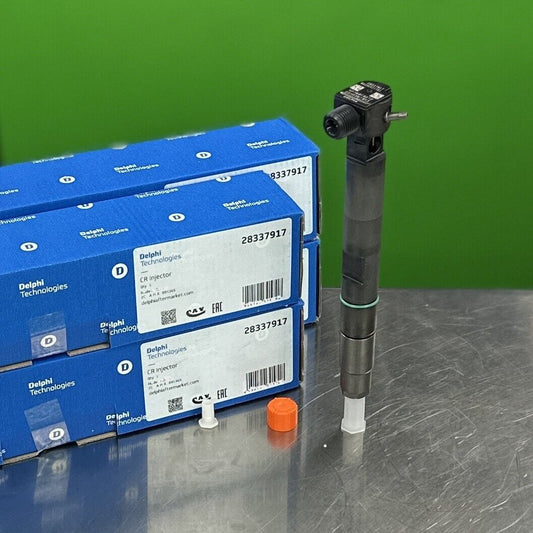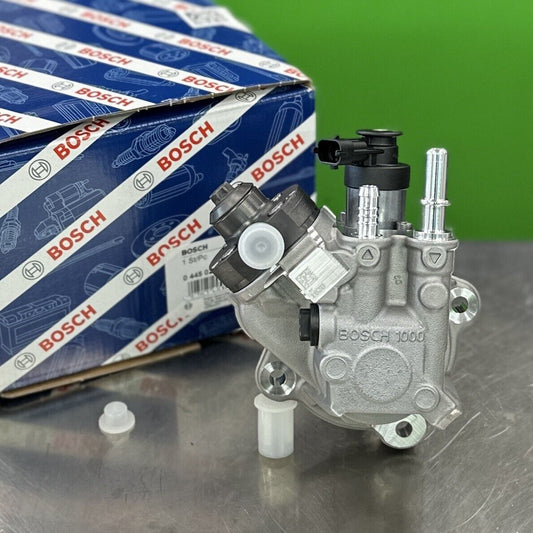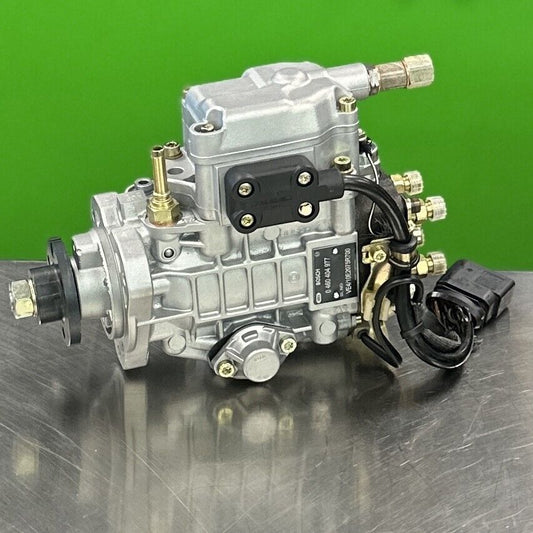How to Maximize Diesel Fuel Efficiency in Nevada
When it comes to maximizing diesel fuel efficiency in Nevada, there are several key strategies and tips that can help vehicle owners save costs and reduce their environmental impact. From regular maintenance practices to driving habits and utilizing modern technology, optimizing fuel efficiency is crucial for both financial and ecological reasons.
One of the fundamental aspects of maintaining optimal fuel efficiency is through regular maintenance practices. This includes timely oil changes, filter replacements, and tire checks. By ensuring that the vehicle is in top condition, it can operate at its peak efficiency, resulting in better fuel consumption and performance.
Moreover, adopting efficient driving habits and techniques can significantly impact fuel efficiency. Simple practices such as maintaining a steady speed, avoiding excessive idling, and utilizing cruise control can go a long way in conserving fuel. By being mindful of these habits, drivers can make a substantial difference in their overall fuel consumption.
Additionally, leveraging modern technology and tools can further enhance fuel efficiency in diesel vehicles. Tools like GPS tracking systems and fuel efficiency apps provide real-time data and insights that can help monitor and improve fuel consumption. By utilizing these resources, drivers can make informed decisions to optimize their fuel usage.
Choosing the right fuel is also crucial in maximizing diesel fuel efficiency. Nevada offers various types of diesel fuel, each with its own characteristics. Selecting the appropriate fuel option based on the vehicle's requirements can impact both fuel efficiency and engine performance. It is essential to understand the differences and choose wisely.
Furthermore, route planning and optimization play a significant role in maximizing fuel efficiency during trips in Nevada. By planning efficient routes, avoiding traffic congestion, and considering alternative transportation modes, drivers can minimize fuel consumption and reduce their carbon footprint. Strategic planning can lead to substantial savings in fuel costs.
Regular Maintenance Practices
Regular maintenance practices are the backbone of ensuring optimal diesel fuel efficiency for vehicles in Nevada. By prioritizing routine maintenance tasks such as regular oil changes, timely filter replacements, and regular tire checks, drivers can significantly enhance the performance of their vehicles and reduce fuel consumption. These simple yet crucial tasks help in keeping the engine running smoothly and efficiently, ultimately leading to cost savings and a reduced environmental footprint.
One of the key aspects of regular maintenance is the prompt identification and rectification of any issues that may affect fuel efficiency. By staying proactive and addressing potential problems early on, drivers can prevent larger and more costly issues down the road. It's akin to taking care of a small crack in a dam before it leads to a catastrophic flood, ensuring the smooth operation of the vehicle and maximizing fuel efficiency.
Moreover, regular maintenance practices not only contribute to fuel efficiency but also play a vital role in extending the lifespan of the vehicle. Just like how regular exercise and a balanced diet are essential for maintaining good health, consistent maintenance routines are crucial for the longevity and optimal performance of diesel vehicles in Nevada. It's about nurturing the vehicle's well-being to ensure it continues to operate at its peak efficiency for years to come.
Driving Habits and Techniques
When it comes to maximizing diesel fuel efficiency in Nevada, paying attention to driving habits and techniques is crucial. Your actions behind the wheel can significantly impact how efficiently your vehicle consumes fuel, ultimately affecting your costs and environmental footprint. By adopting certain practices and techniques, you can make a real difference in optimizing fuel efficiency.
One essential habit to cultivate is maintaining a steady speed while driving. Rapid acceleration and sudden braking not only increase fuel consumption but also wear down your vehicle more quickly. By driving at a consistent pace, you can minimize fuel wastage and promote a smoother ride for both you and your engine.
Another important technique is to avoid excessive idling. Idling consumes fuel without moving the vehicle, resulting in unnecessary waste. When you anticipate being stationary for an extended period, such as waiting in a parking lot or at a drive-thru, consider turning off the engine to conserve fuel.
Utilizing cruise control whenever possible is also a smart strategy for enhancing fuel efficiency. Cruise control helps maintain a constant speed on highways, preventing unnecessary acceleration and deceleration that can lead to increased fuel consumption. By letting the technology assist you in controlling your speed, you can achieve better mileage and reduce fuel costs.
Furthermore, being mindful of your overall driving behavior can make a significant impact. Simple actions like avoiding aggressive driving, adhering to speed limits, and anticipating traffic flow can all contribute to improved fuel efficiency. By driving responsibly and efficiently, you not only save money on fuel but also contribute to a cleaner and greener environment.
Utilizing Technology and Tools
When it comes to maximizing diesel fuel efficiency in Nevada, utilizing technology and tools can be a game-changer. One of the most effective tools in this regard is GPS tracking systems. These systems offer real-time data on vehicle performance, allowing drivers to optimize routes and monitor fuel consumption. By analyzing this data, drivers can identify areas where fuel efficiency can be improved, leading to significant cost savings over time.
In addition to GPS tracking systems, fuel efficiency apps have become increasingly popular among diesel vehicle operators. These apps provide valuable insights into driving habits, fuel consumption patterns, and maintenance schedules. By leveraging the information provided by these apps, drivers can make informed decisions to enhance their vehicle's fuel efficiency.
Moreover, modern vehicles are equipped with advanced technologies such as eco-driving assistance systems. These systems offer real-time feedback on driving behavior, encouraging drivers to adopt fuel-efficient practices. From optimizing acceleration and braking to maintaining a consistent speed, these technologies play a vital role in improving fuel efficiency and reducing environmental impact.
Furthermore, the use of aerodynamic technologies, such as side skirts and trailer tails, can significantly reduce drag and improve fuel efficiency. By streamlining the vehicle's design, these technologies help diesel vehicles operate more efficiently, especially at high speeds. When combined with other fuel-saving strategies, aerodynamic technologies can lead to substantial fuel savings for drivers in Nevada.
Choosing the Right Fuel
When it comes to maximizing diesel fuel efficiency in Nevada, choosing the right fuel is a critical decision that can significantly impact both the performance of your vehicle and your overall costs. Nevada offers a variety of diesel fuel options, each with its own characteristics and benefits. Understanding the differences between these fuels and selecting the most suitable one for your vehicle is essential for optimizing fuel efficiency and engine performance.
One of the primary considerations when choosing diesel fuel is the cetane number, which indicates the fuel's ignition quality. Higher cetane numbers typically result in smoother engine operation and improved fuel efficiency. By selecting diesel fuel with an appropriate cetane rating for your vehicle, you can ensure optimal combustion and power generation, ultimately enhancing fuel efficiency.
In addition to cetane number, it is essential to consider the biodiesel content of the fuel. Biodiesel blends, such as B20 (20% biodiesel, 80% petroleum diesel), offer environmental benefits and can contribute to reduced emissions. However, it is crucial to verify whether your vehicle is compatible with biodiesel blends and to follow manufacturer recommendations to avoid potential issues.
Furthermore, some diesel fuels in Nevada may contain additives designed to improve engine performance and fuel efficiency. These additives can enhance lubrication, prevent corrosion, and clean fuel injectors, leading to better overall vehicle operation. When selecting diesel fuel, inquire about the presence of additives and their specific benefits to determine the most suitable option for your vehicle.
Considering the diverse range of diesel fuel options available in Nevada, it is advisable to consult with fuel providers or automotive experts to gain insights into the characteristics of each fuel type. By making an informed decision based on your vehicle's requirements and operating conditions, you can maximize fuel efficiency, prolong engine life, and contribute to a more sustainable transportation ecosystem in Nevada.
Route Planning and Optimization
When it comes to maximizing diesel fuel efficiency in Nevada, route planning and optimization play a crucial role in achieving cost savings and reducing environmental impact. Efficient route planning involves more than just choosing the shortest path; it requires a strategic approach that considers various factors to ensure fuel is used judiciously throughout the journey.
One key aspect of route planning is avoiding traffic congestion. Sitting in traffic not only wastes time but also consumes fuel unnecessarily. By utilizing real-time traffic data and navigation apps, drivers can identify congested areas and plan alternative routes to bypass traffic hotspots, ultimately saving fuel and reducing overall travel time.
Moreover, incorporating alternative transportation modes into route planning can further enhance fuel efficiency. For shorter distances within urban areas, opting for public transportation or cycling can be more fuel-efficient than using a diesel vehicle. By combining different modes of transportation intelligently, drivers can reduce their reliance on diesel fuel and contribute to a greener environment.
Additionally, considering the terrain and elevation changes along the planned route is essential for optimizing fuel efficiency. Uphill climbs require more fuel consumption, while downhill stretches can allow vehicles to coast and conserve fuel. By understanding the topography of the route and adjusting driving techniques accordingly, drivers can minimize fuel wastage and maximize efficiency.
Furthermore, taking advantage of rest areas and service stations strategically can contribute to fuel savings. Planning stops at locations where fuel prices are lower can result in significant cost reductions over time. Additionally, regular maintenance checks and tire pressure inspections at these stops can ensure the vehicle is operating at peak efficiency throughout the journey.
In conclusion, route planning and optimization are integral components of maximizing diesel fuel efficiency in Nevada. By incorporating smart planning strategies, leveraging technology for real-time information, and considering alternative transportation options, drivers can not only save on fuel costs but also contribute to a cleaner and more sustainable environment. Making conscious decisions about route selection and driving behavior can lead to significant fuel savings and a more efficient transportation system overall.
Frequently Asked Questions
-
What are some common signs that indicate poor diesel fuel efficiency in a vehicle?
Common signs of poor diesel fuel efficiency include decreased mileage, black smoke emissions, engine knocking or pinging sounds, and a noticeable decrease in engine power. If you notice any of these symptoms, it may be time to optimize your vehicle's fuel efficiency.
-
How often should I perform routine maintenance on my diesel vehicle to ensure optimal fuel efficiency?
Regular maintenance practices such as oil changes, filter replacements, and tire checks should be conducted according to the manufacturer's recommendations. Typically, these tasks should be performed at regular intervals or based on mileage to keep your vehicle running efficiently.
-
Can driving habits really impact diesel fuel efficiency?
Absolutely! Driving habits play a significant role in fuel consumption. Simple adjustments like maintaining a steady speed, avoiding rapid acceleration and braking, and minimizing idling can greatly improve your vehicle's fuel efficiency and reduce overall costs.
-
How can technology and tools help me improve diesel fuel efficiency?
Modern tools like GPS tracking systems and fuel efficiency apps can provide valuable insights into your driving patterns, fuel consumption rates, and areas for improvement. By leveraging technology, you can track and optimize your fuel usage to achieve better efficiency.
-
What role does route planning play in maximizing diesel fuel efficiency?
Route planning is crucial for optimizing fuel efficiency. By choosing efficient routes, avoiding traffic congestion, and utilizing alternative transportation modes when possible, you can minimize fuel consumption and reduce the environmental impact of your journeys.



